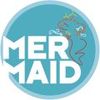Socio-economic importance of Multi-use Offshore Platforms
The social and economic potential of Europe’s so-called ‘Blue Economy’ is immense. According to the European Commission, this economy represents 5.4 million jobs and a gross added value of just under € 500 billion a year. The MERMAID project addresses several sectors of the blue economy which are interdependent and may benefit from shared infrastructure and common skills. The social and economic size and potential of these sectors are elaborated below.
Offshore wind energy
In recent years, offshore wind power generation has expanded rapidly in Europe, partly as a result of the EU policy on renewable energy. By 2013, a total of 2,080 turbines had been installed and grid connected in 69 wind farms in the European seas and oceans. These turbines account for a total capacity of 6,562 MW, representing more than 90% of the offshore wind energy capacity worldwide. The annual investments in this sector range between €4.6 billion and €6.4 billion (2013) [1]. It is envisaged that offshore wind could meet 4% of the EU electricity demand by 2020 and 14% by 2030 [2].
Offshore wave energy
Offshore wave energy is still in a development phase, although its potential is huge. According to Cruz et al. (2008) [3], the total available wave power of all coastlines in the world is comparable to the current world electricity consumption. Wave power devices are currently being demonstrated and underwater turbines driven by currents (tidal or other) are close to commercialisation. In total, 22MW of wave and current devices were installed in 2012 [4].
Marine aquaculture
On a global scale, aquaculture is the fastest-growing animal food-producing sector, contributing significantly to the overall improvement in human diet. Aquaculture production in the European Union is in the region of 1.3 million tonnes with an associated value of € 3.2 billion. This represents 2.3% of the total world aquaculture production in terms of volume and 4% in terms of value. 28% of Europe’s aquaculture production concerns seawater fish while molluscs and crustaceans account for 50% [5] [6]. Most of the aquaculture businesses in the EU are SMEs, providing around 80,000 jobs [7].
References
- ↑ (2014). The European offshore wind industry: key trends and statistics 2013. European Wind Energy Association: [s.l.]. 22 pp.
- ↑ EU communication (2012) 494 Blue Growth opportunities for marine and maritime sustainable growth
- ↑ Cruz, J. (Ed.) (2008). Ocean wave energy: current status and future perspectives. Green Energy and Technology. Springer: Berlin. ISBN 978-3-540-74894-6. XI, 431 pp.
- ↑ EU communication (2012) 494 Blue Growth opportunities for marine and maritime sustainable growth
- ↑ FAO (2012). The State of World Fisheries and Aquaculture 2012. FAO: Rome. ISBN 978-92-5-107225-7. 209 pp.
- ↑ European Commission (2012). Facts and figures on the Common Fisheries Policy: basic statistical data. Facts and figures on the CFP. Publications Office of the European Union: Luxembourg. ISBN 978-92-79-22740-0. 48 pp. hdl.handle.net/10.2771/18990
- ↑ EU communication (2012) 494 Blue Growth opportunities for marine and maritime sustainable growth
